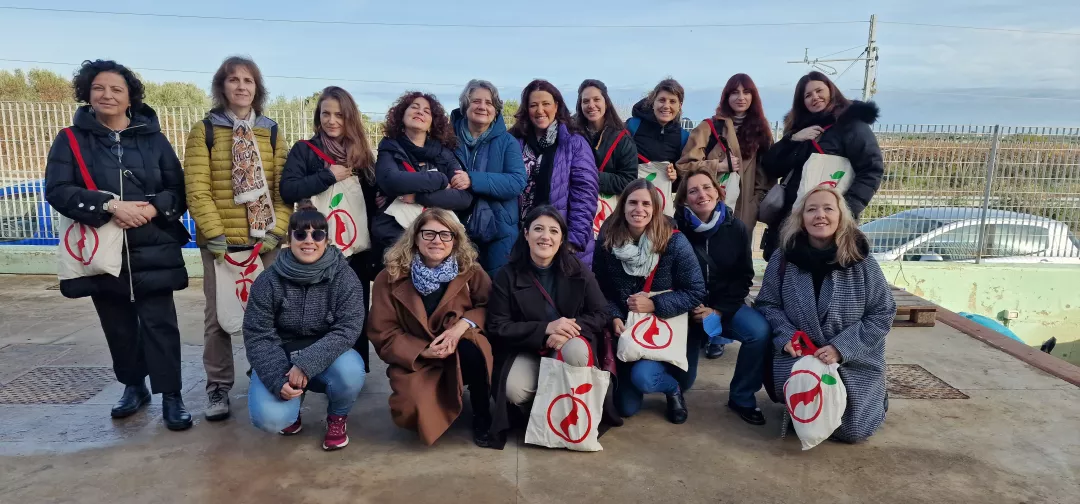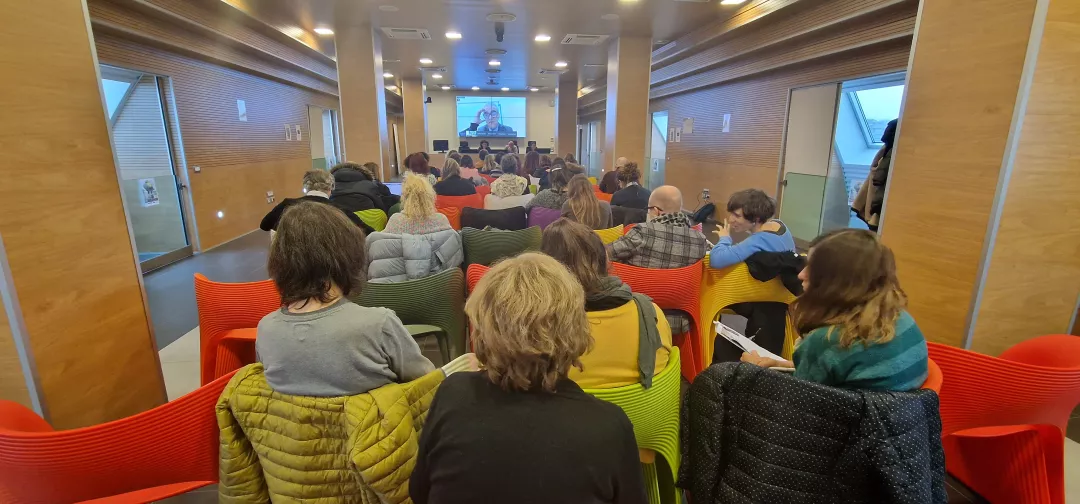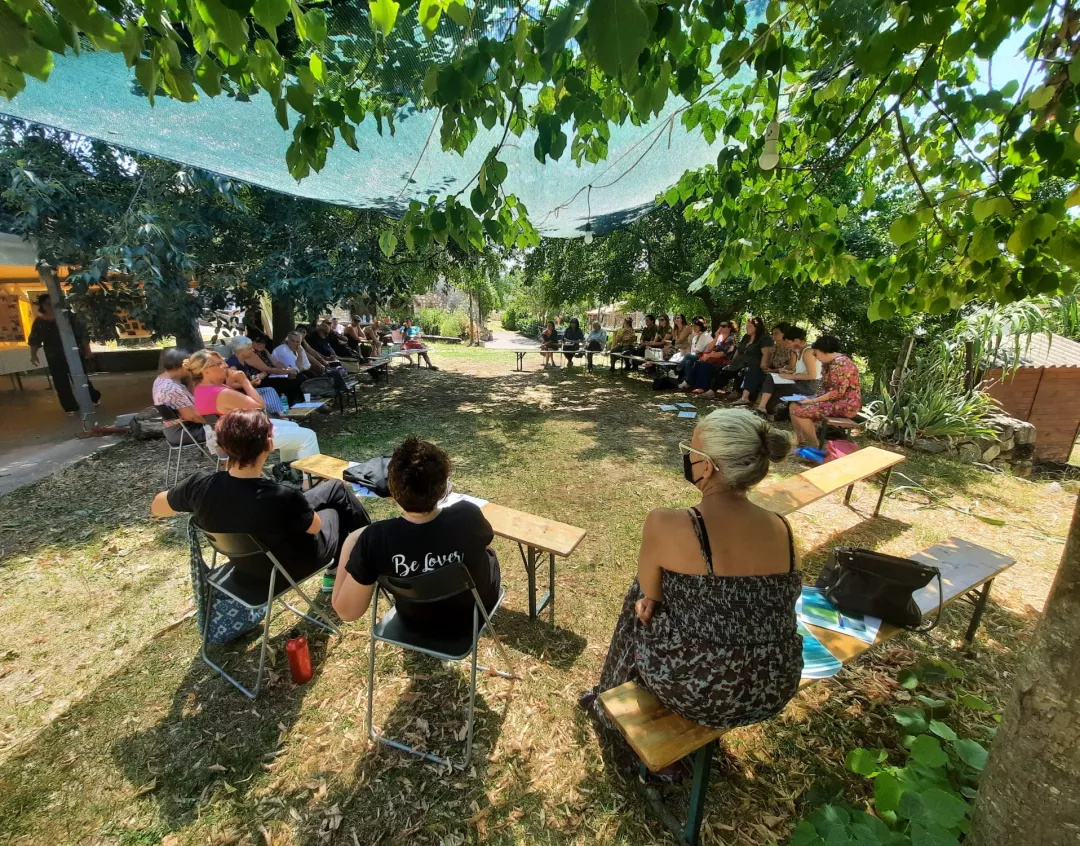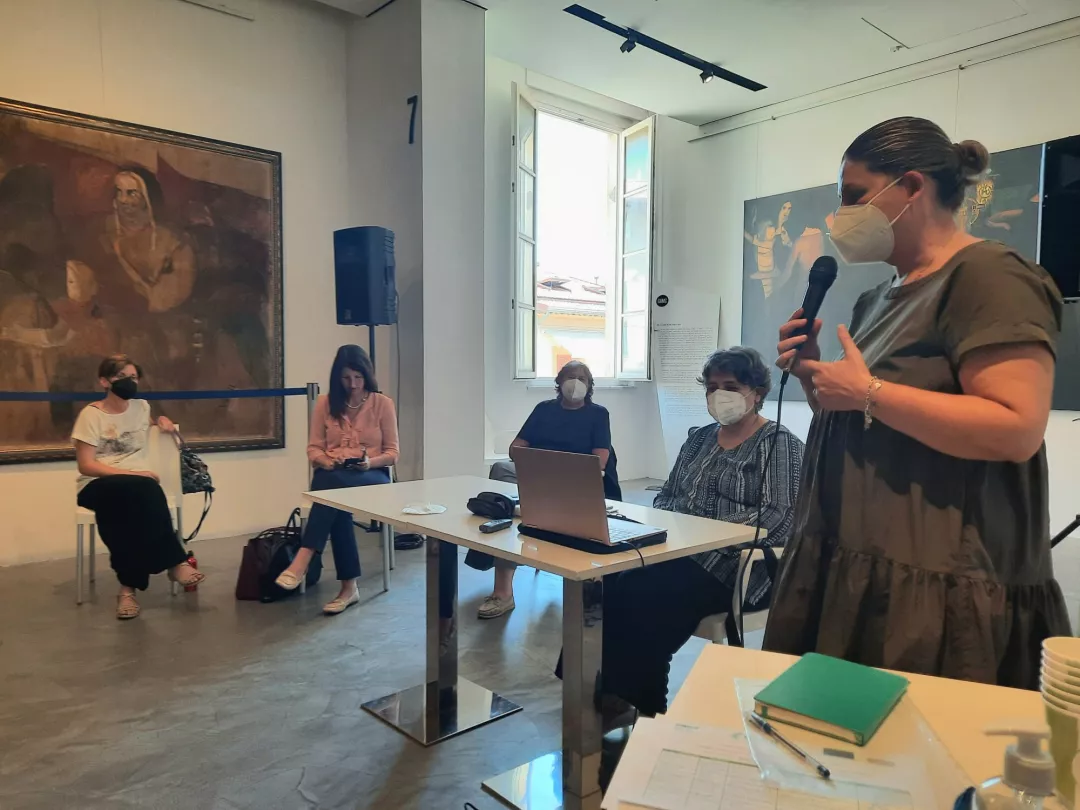Employment in Italian agriculture: what visibility for women?
- CAP Implementation
- Jobs, Growth and Equality in Rural Areas
- Long-term Vision for Rural Areas
- Sustainability
CREA – Centre for Policy and Bioeconomy, as part of the National Rural Network, is holding a series of meetings on “Rights, Development and Rurality: The Collective Strength of Women”.
To enhance the visibility of women and their role in rural areas and to support efforts that may overcome major structural challenges that disempower women and discriminate against them, CREA – Centre for Policy and Bioeconomy, as part of the National Rural Network, is holding a series of meetings on “Rights, Development and Rurality: The Collective Strength of Women”. The working group on Gender equality is made of Catia Zumpano, Barbara Forcina, Annalisa Del Prete, Maria Carmela Macrì, Lucia Tudini and Grazia Valentino.
The meetings addressed women’s right to:
- economic independence, focusing on the key features that characterize women’s work –whether they are self-employed or employees– such as safeguarding health and safety at the workplace or ensuring fair remuneration;
- equal access to:
- a local public system providing basic infrastructure and services that meet national standards,
- active participation in decision-making, political and economic processes,
- training programs and information on current economic and social dynamics.
The speeches and debates highlighted practices in the primary sector (agriculture, livestock and fisheries) and their synergies with various components of local economic systems and will draw from accounts and evidence provided by associations and by academic and institutional communities.
With a view to supporting and strengthening women’s voices, the meetings have been jointly organized with women’s trade unions and professional organizations, economic associations, local institutions and civil society representatives.
The presentations and outcomes of the meetings can be consulted at the link below:
https://www.reterurale.it/flex/cm/pages/ServeBLOB.php/L/IT/IDPagina/24029
First meeting: Women role in Fisheries and Aquaculture (Viareggio, 13 July 2022)
The first meeting was held in Viareggio and involved the fisheries and aquaculture sector with the aim of identifying needs and verifying whether policies and legislation meet the needs identified. The meeting was attended by women engaged in the sector, the Tuscan Fisheries Local Action Groups (FLAG), trade unions, trade associations and representatives of the regional administration.
Although the sector is traditionally perceived as a “male domain”, women play a key role often unrecognized and underpaid. Women stay mainly “on land”, carrying on activities as much important as the fisheries itself, namely accounting, marketing, relations with suppliers and bank, handling paperwork. They are often the major vectors of innovations, new technologies and equipment. With their efforts, women are contributing to face the huge difficulties which the sector is experiencing. Nevertheless, they feel as if they “are climbing different steps on the same stairway", not having the acknowledgement that they should have. It should be necessary a cultural change to make it clear that tasks carried on by women contribute to the value chain as well as the fisheries itself. This new cultural approach could bring Italy closer to the Northern Europe countries where female fishery entrepreneurs are more numerous as well as more acknowledged.
First, it would be necessary to promote knowledge about the presence of women in the sector, providing specific monitoring activity within the Fisheries National Observatory.
Furthermore, measures would be implemented to enhance the women's skills to increase the quality of female participation as well as to offer to young women the opportunity to enter in the sector.
Full integration must be supported even encouraging the creation and the strengthening of associations and networks of fishery entrepreneurs.
From a regulatory point of view, it is necessary to proceed as soon as possible to recognize the figure of the adjuvant, already envisaged in agriculture, and pay attention to fisherwomen embarked on small-scale fisheries to ensure them the guarantee and protection of their rights.

Second meeting: Development, rurality and rights: gender issues (Alvito, 19-20 July 2022)
The second meeting was held in Alvito a municipality settled in an internal area in Lazio region: the location was chosen to better underline the difficulties of internal areas due to their lack of services and low representation of women’s rights. For a long time, women’s rights in agriculture were not represented as well as their work was considered marginal or - when men abandoned the countryside looking for better opportunities in the factories - a poorer replacement of male ones. The women’s emancipation was a long way running alongside the deep social changes experienced in Italy since ’50.
Up to 1964 the so called “Serpieri coefficient” provided by law that women’s productivity was lower than men’s one and therefore they could be paid less than men for the same task. The Serpieri coefficient has been overcome thanks to the social movements which radically changed Italian society and, also, agriculture.
Nowadays, although much progress was made, the role of women in the development of rural areas is still misunderstood especially by policy makers. Firstly, women work does not have sufficient statistical visibility. Political and institutional actors are not strongly stating that gender issues concern both women and men and that supporting women advantages the whole society.
Anyway, raising awareness is not enough to face environmental emergencies, depopulation, and/or the loneliness of those entrepreneurs willing to do business in rural areas.
Sharing a common vision (a long term look), mission (a development strategy) and passion (dedicate time and knowledge) is necessary to guarantee sustainable socio-economic development
During the meeting the film “In questo mondo” (In this world) was projected in the presence of its author and director Anna Kauber, the film shows the daily life of some shepherdesses caught by the director while living with them for some time.

Third meeting: Female entrepreneurship in agriculture: accelerations and delay (Rome, 8 November 2022)
The meeting was held in Rome and it gave the opportunity to share and discuss data coming from different institutional sources - National Institute of Statistics (ISTAT), Unioncamere (the public board which joints and represents the Italian Chambers of Commerce) and FADN and from the story of two woman entrepreneurs.
Despite outlining a consolidated presence of female entrepreneurship in agricultural, data shows the permanence of a large gender gaps, particularly in the lower net income of farms run by women evidenced by FADN data. This result is probably due to the lower capital endowment as well as the lower presence in the most profitable segment, namely livestock, which is considered less suitable for women.
The Census data reported by ISTAT have highlighted a point which need to be investigated: women have a lower propensity to innovate.
Overall, according to data by Unioncamere, female entrepreneurship is more frail, in fact, after the COVID-19 crisis the survival rate of women's businesses is lower than men's.
To boost the female potential, it is necessary to remove the barrier to farms’ capitalization, improving the access to credit even acting on the cultural resistance of women to turn to bank, as well as to improve women’s skills, especially in digital and financial issues.

Fourth meeting: Employment in agriculture. What visibility there is for women (Bari, 14 December 2022)
The seminar was held in Apulia because of the relevance of salaried workers in agriculture as well as the poor conditions often offered on the regional agricultural labour market. It was organized in collaboration with ActionAid Italia. CREA and Action Aid are working together to improve the social inclusion and democratic participation of intra-EU women employed in agriculture in Southern Italy and to boost the adoption of participatory governance systems (PuPs).
The imaged emerging in the meeting from the testimonies and the interventions of experts confirms the existence of a “double weakness” of women employed in agriculture both as agriculture workers and as women.
In countries where per capita income is highest and the agricultural sector most productive and professional, working conditions and economic prospects for workers employed in agriculture are worse than in the other sectors of the economy. In Italy, the latest census in 2020 shows that even if salaried workers increased by 38% compared to 2010 and their share on the total moved from 24% to 47%, the number of yearly standards working days for salaried workforce is still low, that is 53, and exactly the same than in 2010. Moreover, the National Statistics asses (in 2019) a hourly earning equal to €9.2, that is a little more than half of the average in the economy €17.2. In this contest of low bargaining power, women are even weaker than men; in addition, they must face the difficulties to reconcile family life and work and, too often, violence and abuses.
Women have a low visibility, the general lack of information that characterizes the agriculture due to the little importance on the whole economy is worsen by the weak women’s capabilities to represent their needs. As a consequence, public actions, in terms of policy and regulations, can’t addressed the specific female needs.
During the meeting a video told the representation given to rural women in the South of Italy in the ’50 by Nicola Ciletti (1883 -1967), a photographer and painter with an high sensitive to the theme of rurality and their poorer inhabitants, particularly women https://www.youtube.com/watch?v=MtLdK-JeBe0

The key words of the meetings
The key words emerging from the meeting are:
Knowledge, it’s necessary to better understand the needs of women in rural areas. It’s important to find new ways and opportunities to collect women needs and to contrast their invisibility implementing both the capability of women to express their needs and the willingness of authorities to gather them.
Needs: services, training. Besides the necessity to improve services able to support women in the family care, still relied on women mainly, it is necessary to improve women’s professional skills to avoid the risk of the opportunity to develop an advanced agriculture
Network, it necessary to strengthen the relations; the name “The Collective Strength of Women” was chosen to enforce the message
Presentations and details about the seminars are available at this link.
Visit also the websites of the BRIGHT project (on the rights of women in agriculture) and Labsus, which curated the "Pacts for collaboration" in agriculture used by the BRIGHT project.